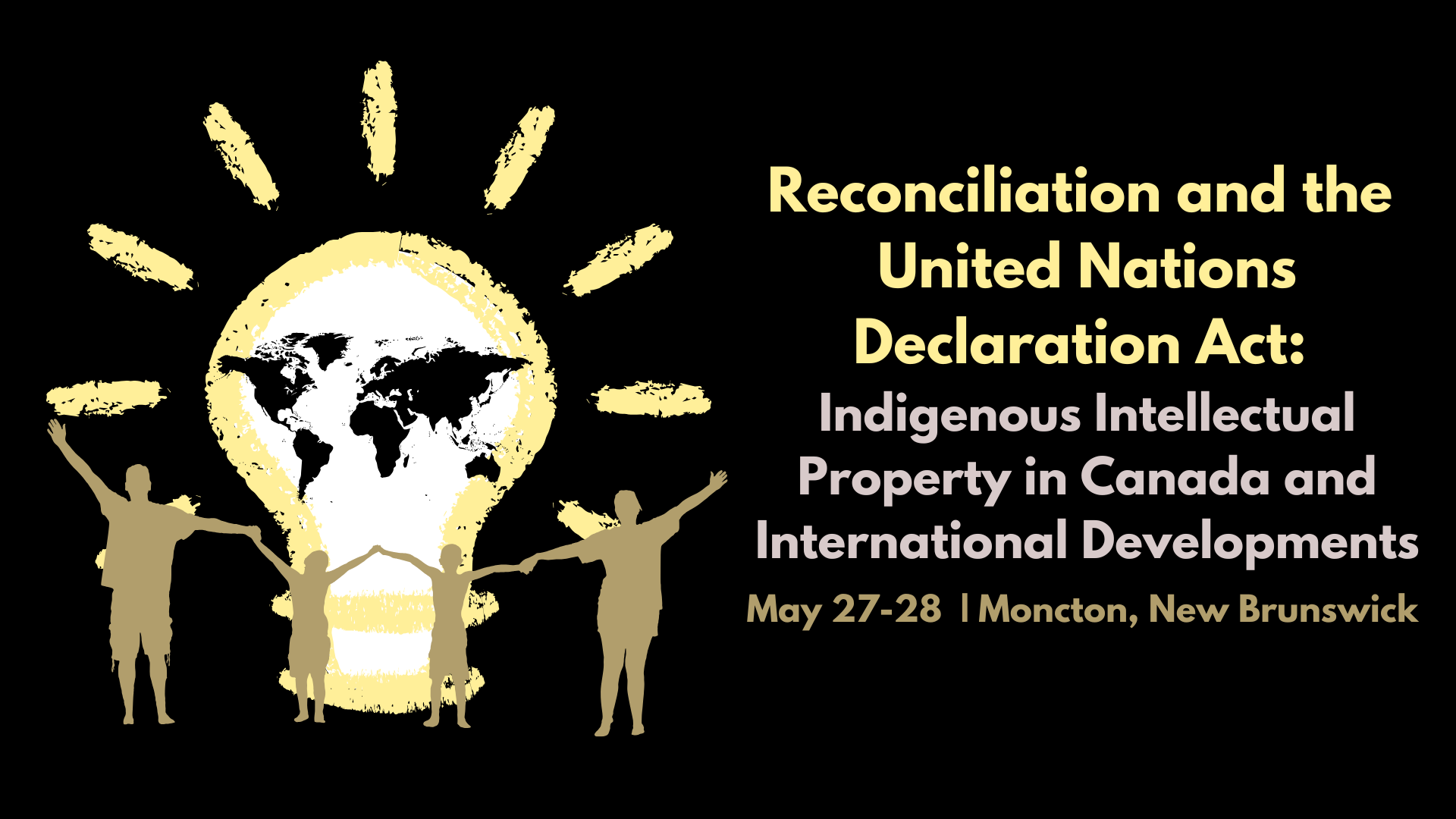Reconciliation and the UNDA: Indigenous IP in Canada and International Developments
Get ready for the Reconciliation and the United Nations Declaration Act: Indigenous Intellectual Property in Canada and International Developments conference from May 27-28, 2025 at the Hilton Garden Inn in Moncton, New Brunswick. Hosted by the Maritime Aboriginal Peoples Council with the technical support of Access and Benefit Sharing Canada, this event is funded by Innovation, Science and Economic Development as part of advancing the Government of Canada’s IP Strategy, which includes supporting Indigenous IP initiatives.
Hear from community members and experts from around the world (Australia, Nigeria, the Philippines, South Africa, the USA) and participate in roundtable experiences sharing on UNDRIPA and questions of Indigenous IP, Indigenous Knowledge, Cultural Expressions, and Canada’s reconciliation project.
Background and Context
Canada’s Truth and Reconciliation Commission’s (TRC) Call for Action # 43 recommended the adoption and implementation of the United Nations Declaration on the Rights of Indigenous Peoples (UNDRIP) as a framework for reconciliation. In response, the Federal Government of Canada and other governments took consequential steps aimed at implementing UNDRIP. Specifically, in 2021, the Parliament enacted the United Nations Declaration on the Rights of Indigenous Peoples Act (UNDA). The Department of Justice (DOJ) has since embarked in ongoing programs detailing the implementation of the UNDA.
A major provision of UNDRIP/UNDA is Article 31, which deals directly, albeit in part, with Indigenous intellectual property rights. It provides, partly, that Indigenous Peoples “have the right to maintain, control, protect and develop their intellectual property over … [their] cultural heritage, traditional knowledge, and traditional cultural expressions”.
Before the enactment of UNDA, in 2018 Canada developed a comprehensive Intellectual Property Strategy through Innovation Science and Economic Development Canada (ISED). The Strategy includes programs under Indigenous Intellectual Property Initiatives, notably the Indigenous Intellectual Property Program (IIPP). The aim is to “support Indigenous Peoples’ capacity building, education, awareness raising, and participation in national and international discussion about the complex relationship between the intellectual property system and the protection of Indigenous Knowledge (IK) and Indigenous Cultural Expressions (ICEs)”.
Workshop Style and Outcome
In this two-day workshop, the Maritime Aboriginal Peoples Council (MAPC) and ABS Canada invite select independent subject matter experts, affiliated policy makers, and Indigenous community members to a hybrid, intensive workshop. We explore the current state of developments on the implementation of UNDA through the DOJ’s Action Plan vis-a-vis ISED’s pre-existing programs under Canada’s Intellectual Property Strategy. We ask: how can Indigenous Peoples leverage the opportunity to mainstream Indigenous intellectual property in the emergent intellectual property strategy and Canada’s reconciliation project? We are interested in how recent developments on Access and Benefit Sharing (the Convention on Biological Diversity/Nagoya Protocol) and the two new WIPO treaties – Genetic Resources and Associated Traditional Knowledge, and Industrial Design could influence and embolden the quest for fit-for-purpose Indigenous intellectual property in Canada. This is a forum for dialogue, education, exchange of insights, sharing of experience, capacity and network building. The outcome will contribute to mapping a policy direction for our community and government agencies; set a future research agenda to position Indigenous Peoples to effectively contribute to national and international developments around Indigenous intellectual property.
Presentation Materials
Thank you to our community members and speakers for sharing their expertise from around the world. Presentation materials from the conference can be found below.
Stay Connected
Contact MAARS@MAPCORG.CA with any inquiries related to this conference.





